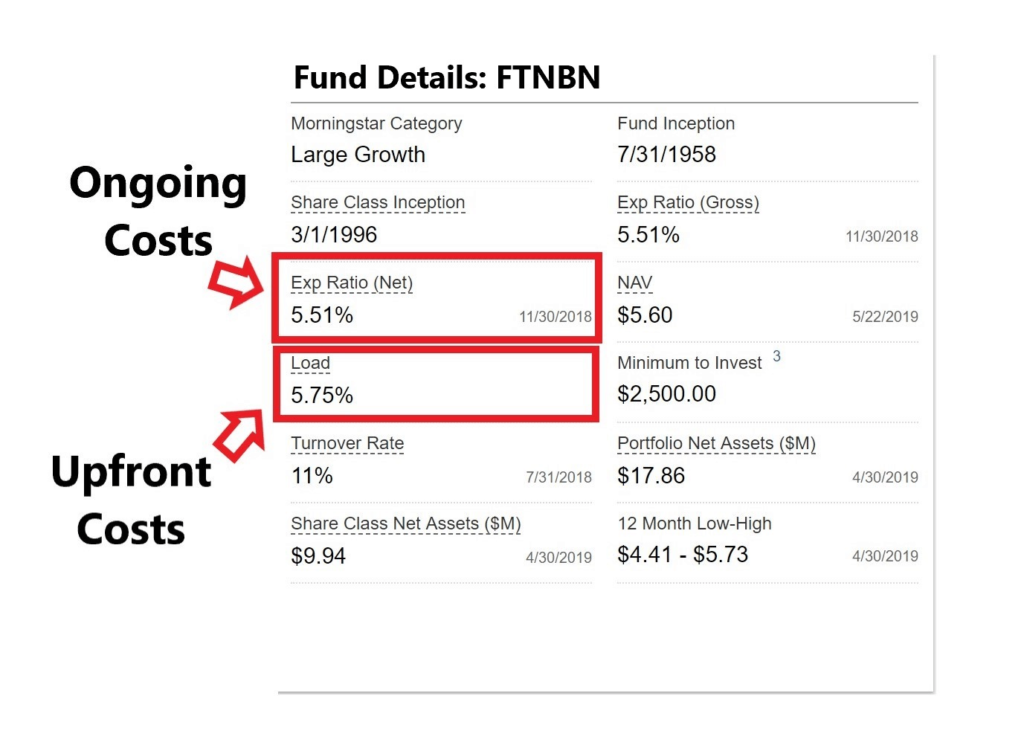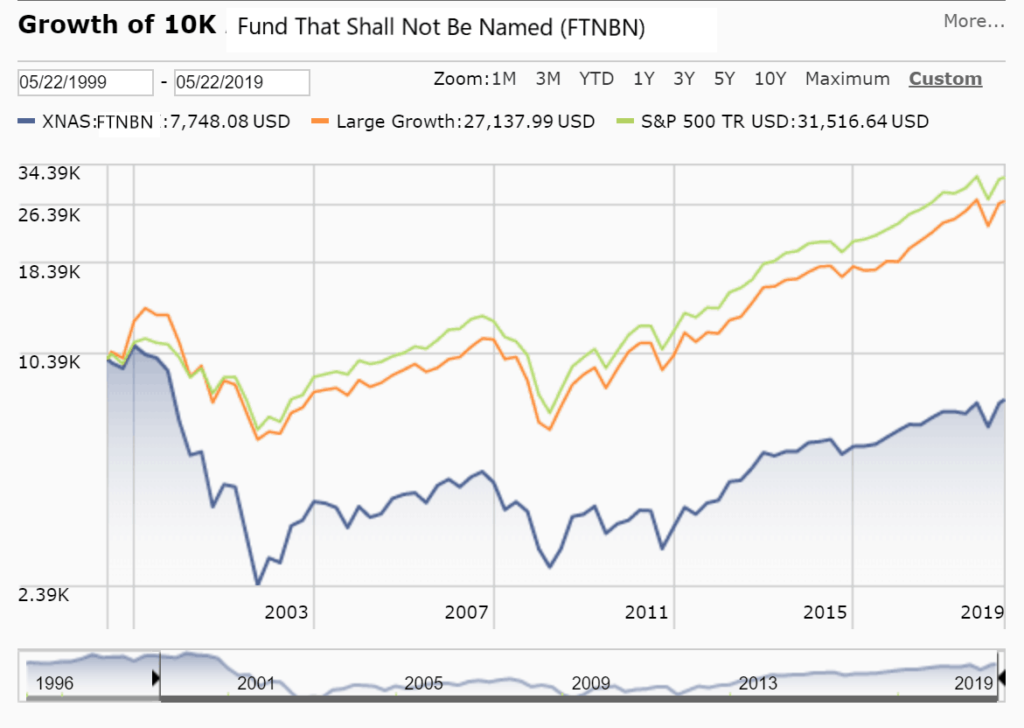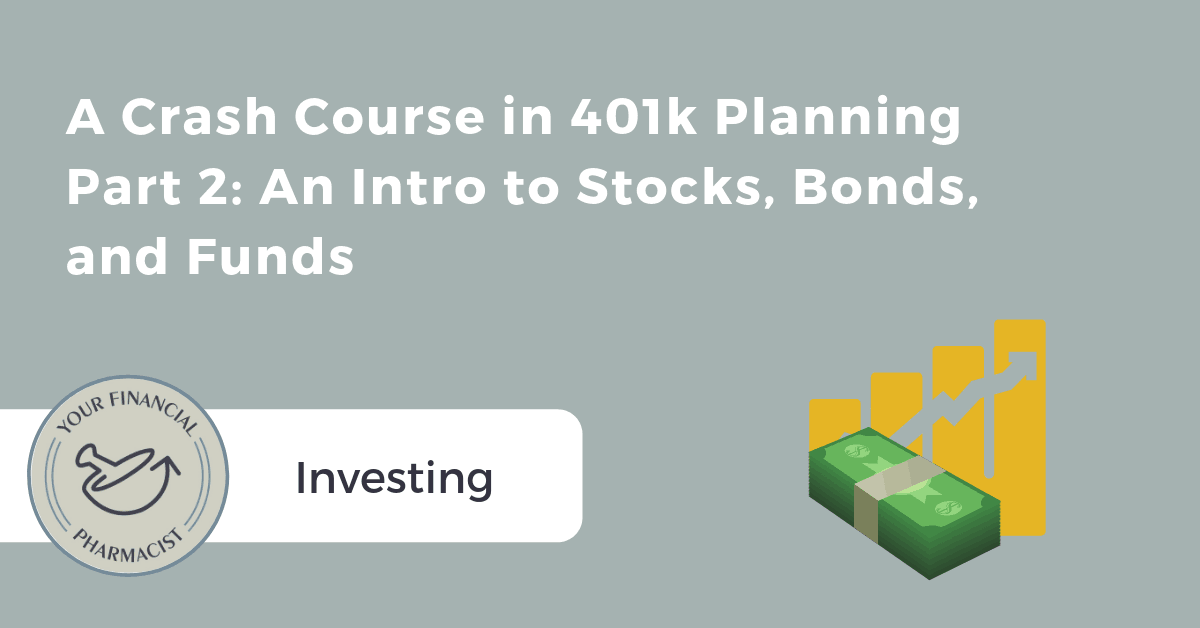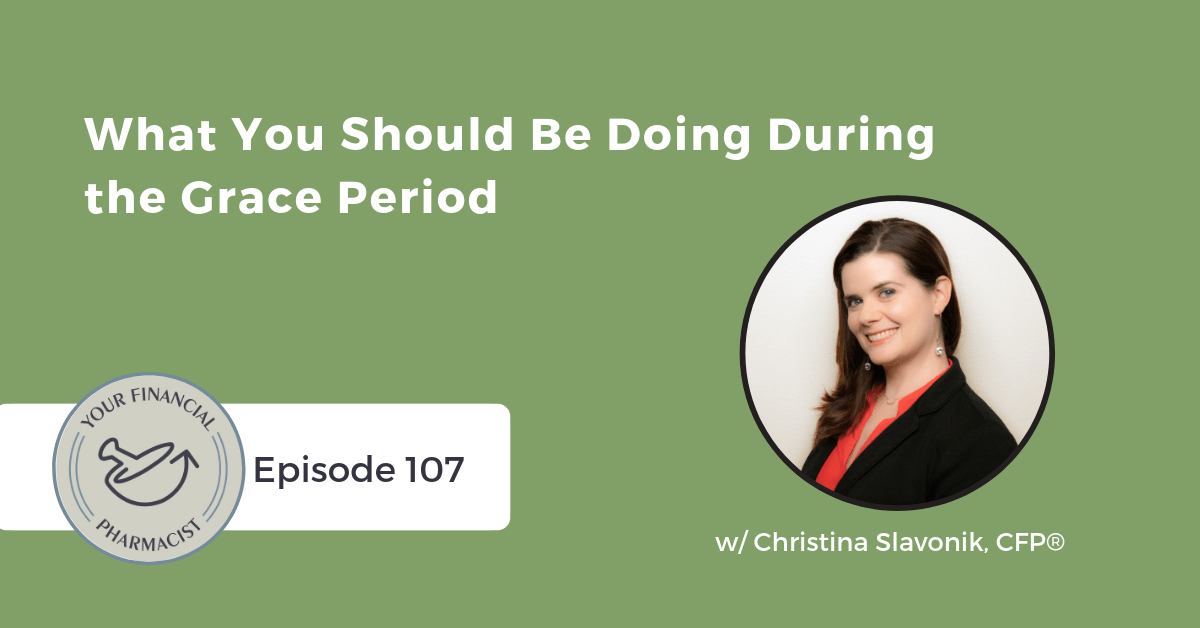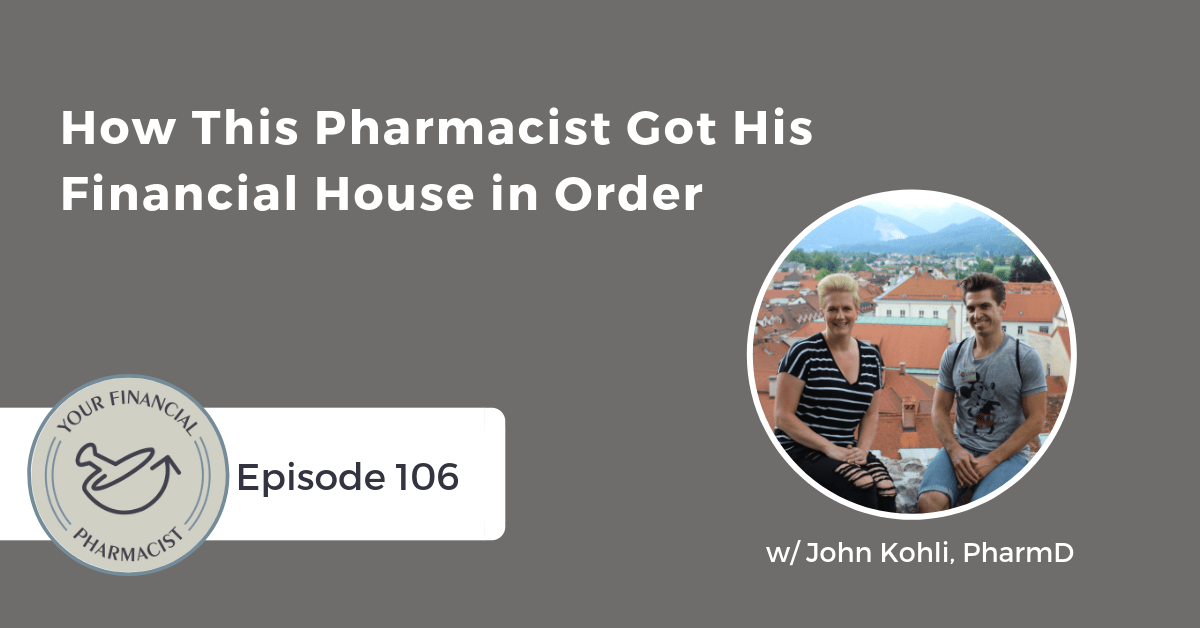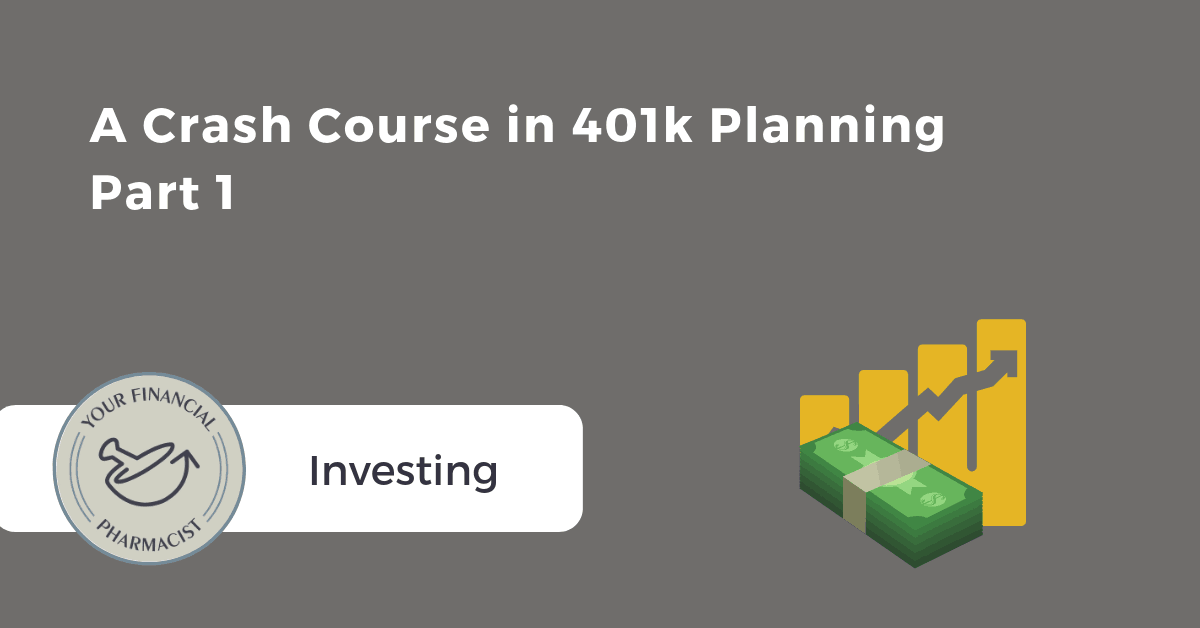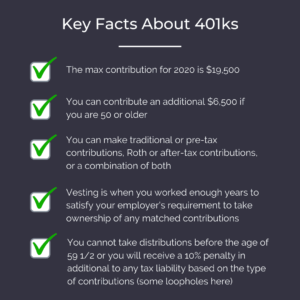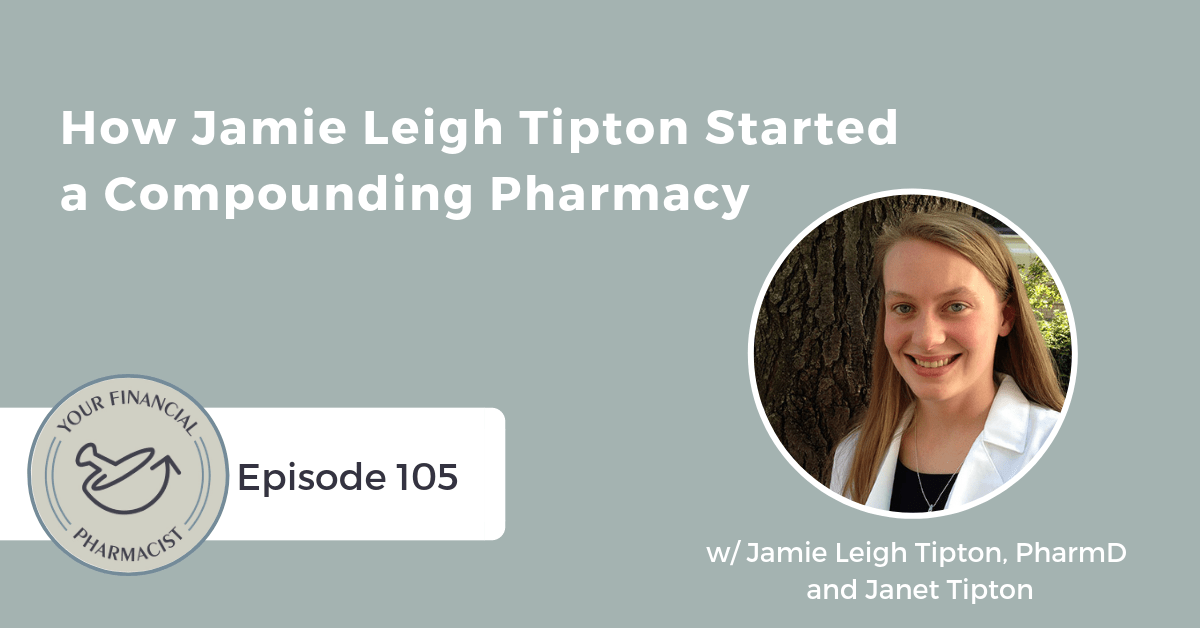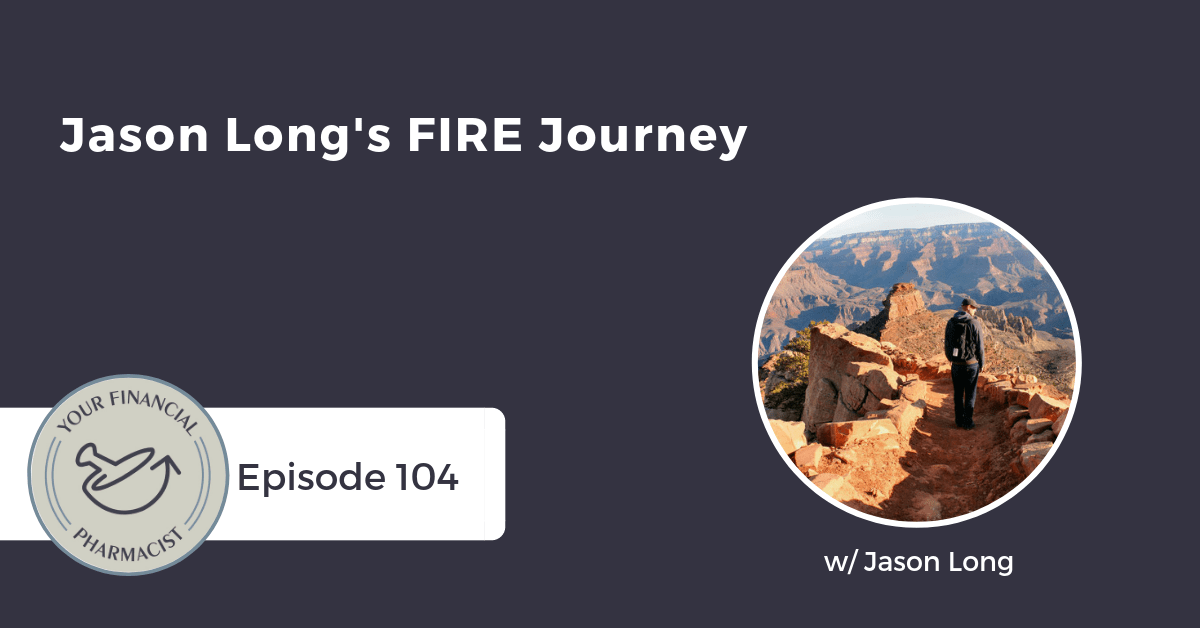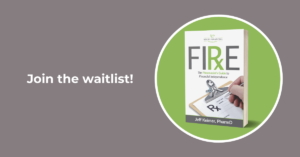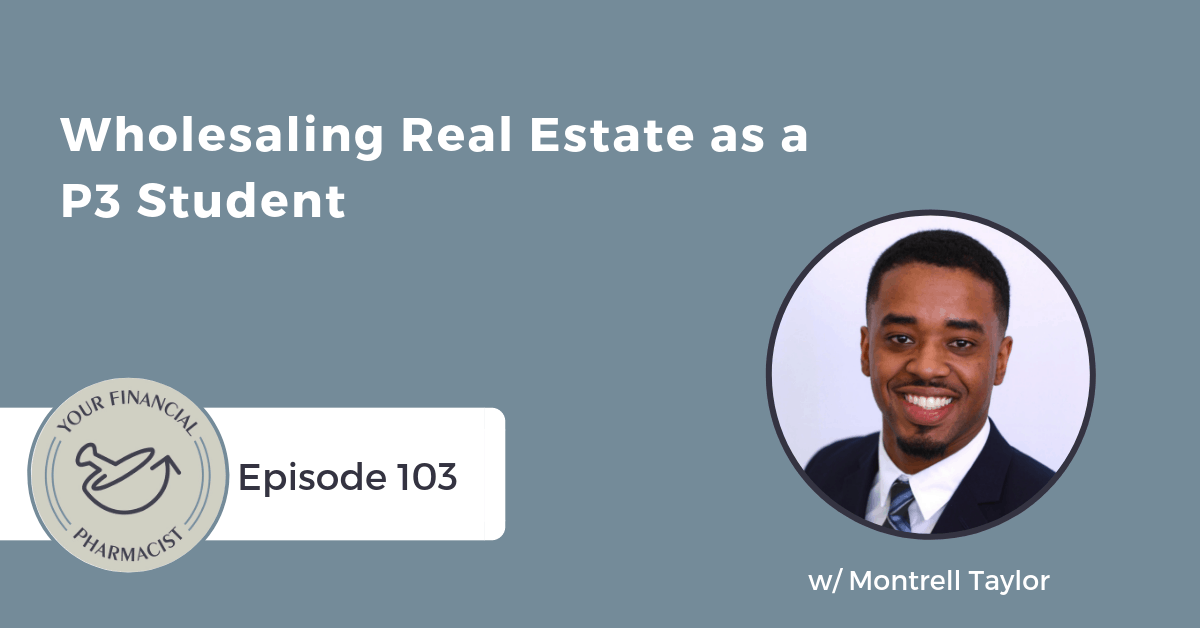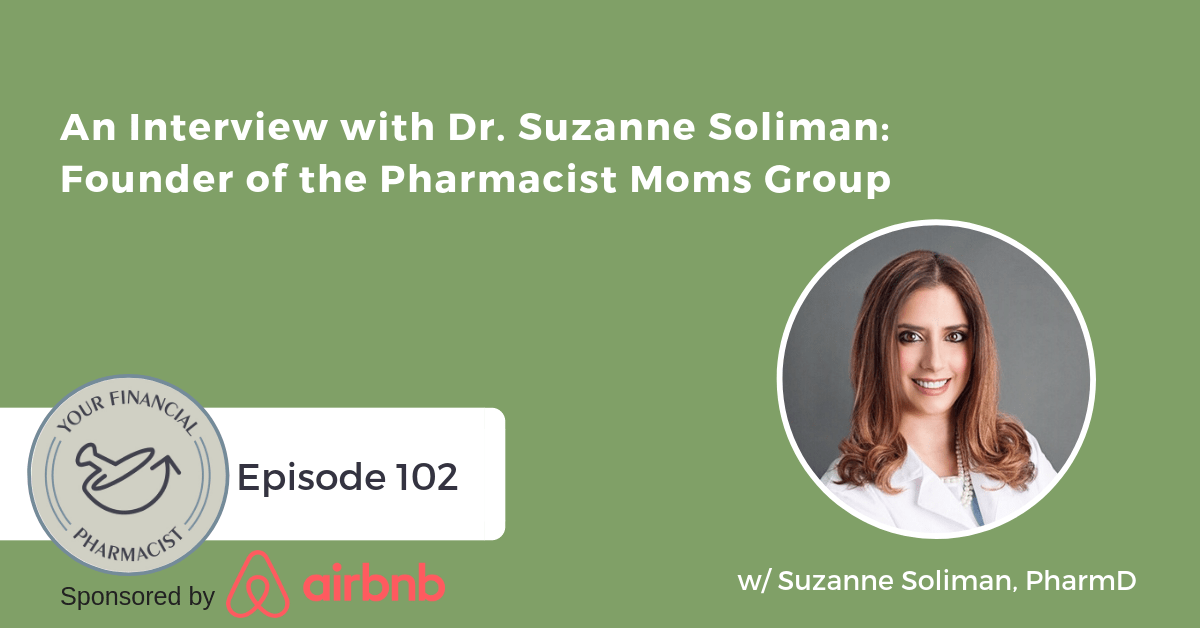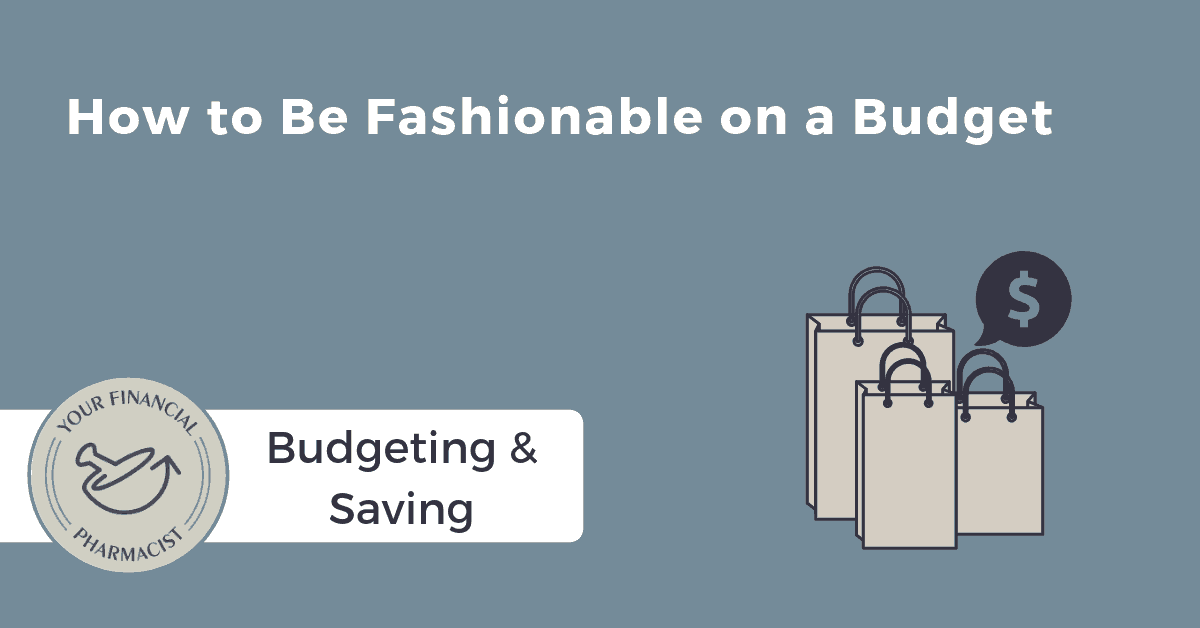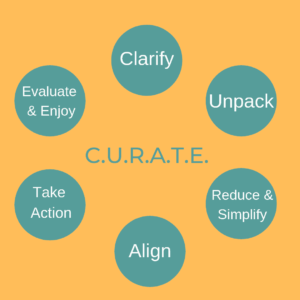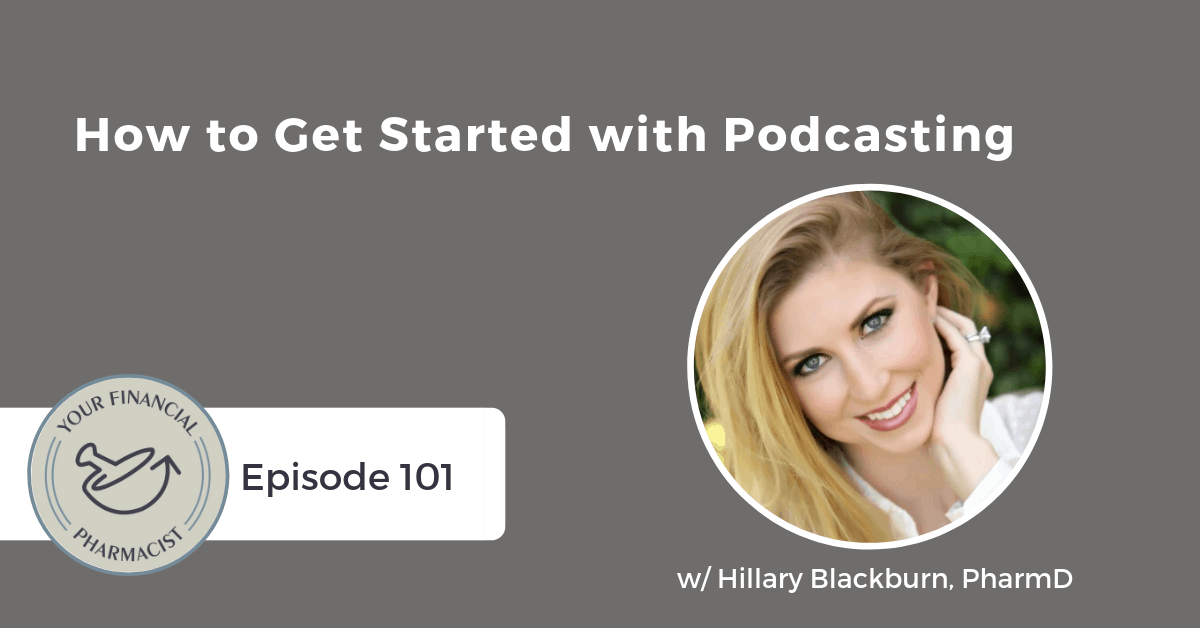Wholesaling Real Estate as a P3 Student
Montrell Taylor, a P3 student at Howard University, joins Tim Ulbrich to talk about his experience in wholesaling real estate. Montrell shares why he chose real estate investing as a side hustle and how he balances being an entrepreneur with pharmacy school.
About Today’s Guest
Montrell Taylor is a third-year doctor of pharmacy candidate at Howard University College of Pharmacy. He currently serves as the Howard Chapter President of APhA-ASP and had the opportunity to serve as a Delegate at the 2018 APhA Regional and National Conference. He also interns at Walgreens Pharmacy and tutors first-year pharmacy students.
Montrell is a native of Memphis, TN and is a middle child. He holds a Bachelor of Science in Biochemistry from Middle Tennessee State University. A true entrepreneur, Montrell is the Co-Founder of Taylor Brother Investments, LLC, where he supports private investors with buying and selling of real estate.
Taylor Brother Investments is committed to providing solutions to any homeowner’s dilemma. Montrell has a passion for making neighborhoods healthy and productive, one home at a time. You can find him on social media or contact him via email.
Summary
Montrell Taylor is a rising P3 student at Howard University. He knew that he wanted to be a pharmacist when he was in high school from to his experiences with community pharmacists and having a pharmacist in his family. He graduated with a degree in Biochemistry and is currently in pharmacy school at Howard University.
After receiving his undergraduate degree, Montrell had some down time and wanted to make more money than he was earning at a temporary job. He and his brother knew that real estate creates the most millionaires each year. Montrell and his brother, Stanford, discovered wholesaling as a way to get into real estate investing with no money and without having to use your own credit. They studied and researched wholesaling and learned from Rico Smith, but didn’t pay anything for classes or training.
After extensive researching, Montrell and Stanford jumped into wholesaling as a way to make money and also find financial freedom. Montrell wanted to find something that brought in an income without having to depend on exchanging his time for it.
Wholesaling assigns a property from a seller to a buyer. The wholesaler makes money by acting as the middle person between the buyer and the seller. First, you have to find a property to wholesale. Montrell and Stanford drive around to find vacant homes, cold call and also post bandit signs encouraging people to call them if they are looking to sell their home. Once a home is found, it goes under contract as the seller assigns the property to the wholesaler. The wholesaler doesn’t put any money down, however the contract says that the wholesaler has equitable interest in the property. From there, the wholesaler connects with an investor or buyer for the home and transfers the contract to the buyer. When a deal closes, Montrell is paid an assignment fee which is the difference from what he got the contract for to what the buyer paid.
Montrell and Stanford have been in wholesaling for two years and closed 10 to 15 deals in 2018. This year, they have already closed 8 deals and are hoping that it’s a more successful year than last year. Montrell shares that you don’t make money right away from wholesaling. You have to learn a specific skill set to make money and have the right mindset to close deals.
Although Montrell is in pharmacy school, he’s able to balance his busy schedule. He says that we have more time than we think we do and stays focused by blocking out distractions, creating and sticking to a stick schedule and uses weekends to catch up on studying.
Mentioned on the Show
Episode Transcript
Tim Ulbrich: Hey, what’s up, everybody? Welcome to this week’s episode of the Your Financial Pharmacist podcast. As I’ve shared with this community before, we have lots of exciting goals and aspirations around real estate education and content for the YFP community here in 2019 and beyond. I’ve shared that Jess and I have a goal of buying our first rental property in 2019, and I’ve got the vibe that many pharmacists out there in the YFP community have similar aspirations or at least have a desire to learn more about real estate. Therefore, we want to bring you some more examples of pharmacists active in real estate investing that can help teach, encourage and motivate us, the YFP community, to learn more. On episodes 009 and 109, Carrie Carlton shares her journey of getting started with real estate and building out her portfolio, which has diversified her assets and provided her with an alternative income stream. That’s why I’m excited about this week’s episode and the chance to interview rising P3 student Montrell Taylor to talk about his journey in real estate investing through wholesaling. So for our listeners, for some quick background, I had the chance to meet Montrell out at the APhA annual meeting in Seattle, Washington, back in March 2019 through a mutual connection, Alex Barker. Many of you know Alex. He’s the creator of the Happy PharmD, a frequent guest on this show and author of the book “Indispensable.” After having a chance to talk with Montrell, I was blown away at his maturity, his professional demeanor, his entrepreneurial mindset, and his ability to understand the importance of diversifying your investments. You know that feeling when you meet someone, and you think, wow, they have the “it” factor: that drive, that mindset that will result in them doing great things? Montrell has that “it” factor, and I’m pumped to be able to share his journey with you, the YFP community. So Montrell, welcome to the show.
Montrell Taylor: Thank you for having me. Glad to be here, glad to be here.
Tim Ulbrich: Excited for this. I genuinely meant what I said. You know, I think I even shared with my wife that evening, like when you have those interactions where you meet somebody, and you can just tell they have the fire within them, you have that factor. And your future is bright. So I’m excited to be here in person, in Baltimore, at YFP headquarters to do this interview. So one of the questions I don’t think I asked you when we met is how did you get connected with Alex Barker? What was that backstory?
Montrell Taylor: So with Alex Barker, I actually seen him on Instagram one day. And I was just kind of interested because I seen him actually on an ad. And a couple days later, I seen him again on LinkedIn. So me and him actually connected through LinkedIn, and we set up a phone call because I noticed that he also was an entrepreneur. So we just got to talking, and I mean, our conversation was just real easygoing. We both talked about how we both wanted to make sure we were able to succeed in our businesses. And he was just able to give me like a lot of great information about just being an entrepreneur. So I think just both of our mindsets kind of clicked once we had that first conversation. And then we were thinking, we should have some sort of meetup to talk to more investors at the APhA conference. So last year, I went to the first — I went to my first APhA conference.
Tim Ulbrich: That was Nashville, right?
Montrell Taylor: Nashville, correct. And my mind was just blown. I just seen so many opportunities and got the chance to network with so many different people. And I just knew that the next year, which was this year, I was excited to go back. And then when I seen that Alex was also going to the conference, me and him just connected like, you know what, let’s try to set up a meetup at the conference. So we did that, and that was actually the first time we ever met in person. So the same time I met him and you was literally the first we’ve ever met.
Tim Ulbrich: It’s all about networking, right?
Montrell Taylor: All about networking. It’s important because I always hear so much: Your network is your net worth. And I think pharmacy school has shown me how important that is because I’ve got a chance to meet so many people, just off of networking, you know? And people get so kind of scared about the idea of networking because it’s kind of like you’re trying to pick somebody’s brain to benefit from it in some way. But the only thing you’re doing is just building relationships. And that’s what business is all about.
Tim Ulbrich: I love it. So before we talk about your experiences with real estate and more specifically, with wholesaling, I want to talk about your journey into pharmacy and get a little bit more for about where your career as a pharmacist is going as you get ready to go into your P3 year. Obviously, I’m sure you have many questions still to answer about that. So why pharmacy? And why Howard? Talk us through that journey.
Montrell Taylor: OK, so why pharmacy? I’ve had that question a lot. Pharmacy is something that I wanted to do ever since I was in high school. Every time I seen a pharmacist, I just would have this perception of them of like they’re just smart, they’re personable, I can talk to them about my issues and things like that. So as I progressed through school and I started to learn about how the body works and I took chemistry and biology and stuff like that, I was amazed at the fact that how these small molecules and compounds, how they can change the composition of the body. So when I learned about that, it was interesting to me. And after I got my degree in biochemistry, that’s when I really had a great understanding of how the body works. But I wanted to increase my knowledge and just learn about why do people get sick? And how do these small pills create a small — like how do they create a difference in people’s daily functions and stuff like that? So that’s what really made me want to be a pharmacist. And I also have a family member who is a pharmacist. And then when I seen her progress through school and I just see the lifestyle that she’s living, it motivated me to be a pharmacist. And the reason I chose Howard was because first, I wanted to get out of Tennessee because even though I enjoyed growing up there, I kind of wanted to experience something new. So one day, I was just applying to different schools; I applied to a school in Georgia, and I applied to Howard. I only applied to two schools. So once I came to Howard for my interview, I was just amazed at talking to people, and they told me about how great the environment is and how great the learning experience was. I fell in love with the campus. And it was just funny because when I actually got accepted to Howard, I actually called my mom, and me and her just — we broke down and just started crying on the phone because I was just so excited to actually get a chance to explore Howard because I just heard so much about the school. And then the fact that I was able to actually — I’m able to actually be a student at one of the best schools in the nation is just, is great.

Tim Ulbrich: So shoutout to Howard.
Montrell Taylor: HU.
Tim Ulbrich: We had another guest from Howard before, but it’s awesome. And hopefully we’ll have some opportunities to work with Howard as well in the future. So biochemistry major.
Montrell Taylor: Biochemistry major.
Tim Ulbrich: Now you’re in pharmacy. And now we’re going to add on to that real estate. So help me make this connection of why side hustle with real estate? I mean, those things don’t often go together, right? What was the connection there.
Montrell Taylor: They don’t. So real estate makes the most millionaires each year. So after I graduated, which was in 2016, me and my brother, Stanford Taylor, are like — none of this would have been possible without my brother.
Tim Ulbrich: Where is he located?
Montrell Taylor: He is currently in Memphis, Tennessee. And he primarily works on our Memphis market.
Tim Ulbrich: OK.
Montrell Taylor: And once me and him graduated from college, we worked a job, and we had so much free time because I was waiting to interview for Howard and all these different schools, so I had a break. And we actually worked at a call center. And it was fine. We made decent money, but we wanted something more, right? So it was just something clicked in our heads one day, and we actually watched this video from a guy named Rico Smith. This is a guy who’s pretty famous in Memphis from wholesaling.
Tim Ulbrich: OK.
Montrell Taylor: And after watching his video, he just talked about how you have to have a certain mindset if you want to live the life you actually want to live. And we watched the video, and he is also the one who spoke about wholesaling. And then when we learned that this is a way that you can get involved in real estate without using any money or credit, then we really had no excuse not to at least try. So I just remember one day, me and my brother were just talking about getting started, and we were talking about like making a name for our company and stuff like that. And we both just agreed that if we wanted to be serious about actually starting in real estate, we had to just go ahead and just do it. So we just did it, and it’s took off ever since.
Tim Ulbrich: I love that story because I think what stand out to me there is that out of 100 people that may listen to a video like that or read a book on real estate or whatever, maybe one is actually active. Right? It’s the mindset, it’s being willing to take a little bit of calculated risk.
Montrell Taylor: Right. And then it’s just so funny because us as we as humans, like we put limits on ourselves subconsciously. Like let’s say, for example, if you wanted to start a business. Nobody’s going to tell you, you specifically can’t start a business. The only thing that’s stopping you is you.
Tim Ulbrich: That’s right. Amen.
Montrell Taylor: That’s the only thing! And I think that one time, when I listened to you guys’ podcast, you guys made a great point when you said, you have to get out of the way of you. Like that makes so much sense because we get so caught up in what make it wrong and we don’t have the money or the time. We limit ourselves to so much that we can do. And it’s just crazy when we just have a completely different mindset, we can do — I feel like we all can do just great things.
Tim Ulbrich: That’s great stuff. A lot of wisdom there. So what was the goal? When you jumped into wholesaling, you know, here you are, getting ready to apply for pharmacy school, obviously, some cash, of course, is the goal. But were you at the time thinking, hey, this could really lower my indebtedness? Or this could diversify my assets. I mean, what was the goal of jumping into real estate at that point in time?
Montrell Taylor: The goal was having freedom. Freedom and, of course, money because, you know, it’s great to have a job. It’s great to have a nice-paying job. That’s great. But the fact that you have to exchange time for money, that was the idea that I didn’t want to have to completely depend on. So it really was the freedom because we wanted to have a business where we could first of all, we could control it because we are the owners. So since we have the, you know, like the power to do whatever we please as far as our own business, we really wanted to have freedom and money.
Tim Ulbrich: OK.
Montrell Taylor: Because money isn’t everything. But you know, to do the things you want to do, it takes money because the country that we live in has very heavily relied on economics and cash flow. So the fact that wholesaling gives us the opportunity to have freedom and make money, it was the perfect combination.
Tim Ulbrich: Yeah, and I think so many people say you’re not going to get happiness from money, right? And I think that that’s true. But I think where you can derive happiness is from the freedom and the choices. And we talk all the time on the show about having options, right? So whether that be you want to start your own business, maybe you want to stay home with the kids, you have a sick family member you want to care about, you want to really pursue some philanthropic efforts that are important. Doing those things and having the ability to do those stress-free are some of the things that provide happiness.
Montrell Taylor: Right. And then, I mean, it’s also jobs out there where you can actually have freedom and make money. So I’m not talking bad about any type of job, but I just know me and my brother personally, we wanted to have something for our own. Because my father, he also owns a business. He owns a cell phone store. Excuse me. So just being able to see him, like he could always when he wanted to, let’s say take off for one of my brother’s football games, he just doesn’t go to work. You know? So just small things like that and just being able to, you know, have that freedom.
Tim Ulbrich: So before I ask you and we get in the weeds on wholesaling, I have to know, like you and your brother must get along then, right? I mean, how does that work between the two of you?
Montrell Taylor: My brother is literally the exact same person as me. Like we act the same. Like my best friend, my road dog (?), everything. I also have a sister as well, and we’re the exact same. My sister is younger than us, and we wanted to build this business so we could take care of the entire family because my sister is, she’s the smartest one out of all three of us. She’s the smartest one, but I just know that me and my brother, we wanted to do the groundwork so that we can, so that we don’t have to call on our sister to do work for us.
Tim Ulbrich: Yeah, sure.
Montrell Taylor: So I mean, we act the exact same. We get along a lot. I mean, we’ve had a couple of arguments, but when me and him argue, it’s just funny because I don’t know if you’ve had this case, but sometimes, when you’re giving someone constructive feedback, specifically to another male, they kind of take it offensive, right? So when me and him are talking about different things as far as business goes, the fact that we’re brothers, it’s like, we can argue all day. But at the end of the day, we’re still going to be brothers. Like you’re not going to get rid of me. We’re going to be here forever. And actually, growing up, we used to get in trouble if we fought each other, right? So we just always had this strong bond, and we just always had the mindset that whatever happens, we’ll have each others’ backs.

Tim Ulbrich: Yeah, and I think iron sharpens iron, right?
Montrell Taylor: Right.
Tim Ulbrich: So I think when you get to that point where you’re comfortable with that feedback of each other, ultimately, the business is going to get better.
Montrell Taylor: Right, because it’s been so many times where I’ve got a great idea from him, and he has done the same for me. For example, I was just talking to him three days ago. And he was telling me how sometimes, he does Uber Eats. And once I get into wholesaling, something people do to find sellers is post bandit (?) signs. And these are like the signs you see around the neighborhood, like “We Buy Houses,” and stuff like that, right?
Tim Ulbrich: Yeah, yeah.
Montrell Taylor: So something that he said that just made so much sense to me, he was like, “Man, you can do Uber Eats for two reasons that will benefit. Well, really three reasons. First of all, you make money. Secondly, you find new places about the city,” because I’m not from here. I’m from Memphis.
Tim Ulbrich: Yeah, so you’re learning, right?
Montrell Taylor: I’m still learning, right. So I’m still learning the area and things like that. And then third and most importantly, and since we’re driving, like dropping off orders and stuff like that, it also gives you the opportunity to put out bandit (?) signs, right? So it’s like you’re making money by driving —
Tim Ulbrich: Double dipping.
Montrell Taylor: You’re double dipping!
Tim Ulbrich: Yeah, it’s awesome.
Montrell Taylor: And you also are improving your own business because you’re attracting sellers by putting out these signs. So we always just feed off each other with great ideas.
Tim Ulbrich: One of the things I want to go back to real quick, you know, if Tim Baker were here, he would be preaching, “Find your why. Know your why. Have clarity around why you’re doing what you’re doing.” And I love what you said about first, financial freedom, but then also the mission around caring for family. I mean, it sounds like so much of that fuels what you’re doing. So I think this is just another great example for our listeners, as you’re looking a side hustle, whether it’s pharmacy-related or not, like what’s the point? What’s the goal? What are you trying to achieve? Because ultimately, that’s going to fuel you. And we’ll talk here in a little bit how you balance this with other things. But you know, it’s not like you have all the time in the world. So there’s sacrifice. But you have a why behind it that’s driving you —
Montrell Taylor: I do, I do.
Tim Ulbrich: Through that period. So that’s really cool.
Montrell Taylor: I do.
Tim Ulbrich: So talk to us about what is wholesaling? What does that term mean? And maybe give an example of something that you’ve done that will help our listeners understand that.
Montrell Taylor: OK, so wholesaling is a way to essentially make money in real estate without using any of your money or using any of your credit. So wholesaling is essentially, you are assigning a property from a seller to a buyer. So you play the middleman role.
Tim Ulbrich: Yeah.
Montrell Taylor: So let me kind of break it down a little bit more. So the first part of wholesaling is finding a property. And there is a number of ways to find properties. You can actually drive around the city. And if you are to see a property that looks vacant, you could try to get in contact with the owner and just see if they’re looking to sell it. Like I said, you can also post bandit signs. Bandit signs will be the most effective way to find sellers because people will contact you if they’re looking to sell. So that kind of saves you from having to go out and find sellers.
Tim Ulbrich: So people actually call those numbers on the corner.
Montrell Taylor: Right.
Tim Ulbrich: I see those all the time.
Montrell Taylor: Right. Like people see them and it’s kind of like, who’s going to call them? But a lot of people call those numbers on the bandit signs.
Tim Ulbrich: So in those two examples, you’re trying to identify properties that are not yet on market?
Montrell Taylor: Correct.
Tim Ulbrich: OK.
Montrell Taylor: Because we want off-market properties at a discounted price because let’s say if you were trying to buy a house, fix it, and put it back on the market, if the house is already at a market price, then you don’t have much room to buy it and put more money into it to fix it and put it back on the market, right?
Tim Ulbrich: Right.
Montrell Taylor: So the key is getting properties at a discounted price that is way below the market value. So after you get a property that — after you find a property, the next step is to, like I said, get in contact with the seller. So after you talk to a seller, you’re going to get this property under contract.
Tim Ulbrich: OK.
Montrell Taylor: Which is an assignment contract, which means that the seller is essentially assigning the property to you. So let’s say if I’m the wholesaler in this sense, and let’s say you’re trying to sell your home, you call me from a bandit sign. You say, ‘Hey, Montrell, I have a home in Baltimore, and I’m looking to get about $40,000 for it.’ What I’ll say is, ‘I don’t know if I can get you $40,000, but I can take a look at it and I can see, you know, if we can get close to that number.’
Tim Ulbrich: OK.
Montrell Taylor: So I meet you in person, I see the home, and I say, ‘Well, Tim, I can get you about $32,000.’ And you say, ‘OK, fine. Great.’ So what I’m going to do is I’m going to get this property under contract with you for $32,000 because that’s all you want in order to be satisfied.
Tim Ulbrich: You’re not having to put any money down or anything at this point, right?
Montrell Taylor: No money down. But what this contract says is I have equitable interest in this property. So now I have the property under contract with you for $32,000. Now let’s say I go to Tim Baker. I know that he buys homes, right?
Tim Ulbrich: Yes. He likes to pay a lot for them. Margin’s going to be good here.
Montrell Taylor: OK, great. That would be great. So I will go to Tim Baker and say, ‘I have this property in Baltimore that you can buy it, you can fix it up, you can either put it back on the market, you can rent it out,’ but the main thing that Tim Baker wants to see is the ARV.
Tim Ulbrich: Right. So explain that for our listeners, the ARV.
Montrell Taylor: ARV is known as the After-Repair Value. What this is is after you buy the property and put it into basically brand new condition, like HGTV type condition, how much will this property sell for after the work is put into it?

Tim Ulbrich: Right.
Montrell Taylor: So what most investors do when they are looking to purchase properties, there’s an equation that they use, which is called the 70% rule. And I’ll talk about that in a minute. So I go to Tim Baker, and I say, ‘I have this property for let’s say $40,000.’ You only want $32,000. Tim Baker says, ‘Well, I can give you $38,000.’ And I say, ‘Fine.’ Once we go to closing, you’re going to be there, I’m going to be there, Tim Baker’s going to be there, I’m going to assign this property from myself to Tim Baker.
Tim Ulbrich: So transfer, essentially, the property.
Montrell Taylor: Transfer it. And what I’m doing is I’m assigning the property to Tim Baker. So once we go to closing, I get paid an assignment fee. And that’s essentially a wholesale deal.
Tim Ulbrich: And then that fee would basically be you got it for $32,000, you sold it for $38,000, that $6,000 goes to you as the wholesaler.
Montrell Taylor: Correct. And I didn’t mention me putting down any money.
Tim Ulbrich: Sure.
Montrell Taylor: I didn’t mention running a credit check or nothing like that. The only thing it is, it’s a skill set that has to be used in order to make money because like I said, you don’t need money to get started in real estate. You just have to motivation and really, just a work ethic.
Tim Ulbrich: Yeah. So I’m a huge fan of the Bigger Pockets podcast, and one of the things they always talk about in that show is the most difficult part of the equation is finding deals, finding deals, finding deals. So you as a wholesaler where you’re not putting money down, you’re basically taking that effort of finding the deal out of the equation.
Montrell Taylor: Right.
Tim Ulbrich: So that is me, as an investor, who hey, I don’t have the time, Montrell, I can’t get clear, I don’t have the scale, I can’t put out bandit signs, like I’m willing to pay that wholesaling fee because I as the investor, I still am running my numbers myself. So if I have to pay a wholesaler $4,000 but the numbers still work and I don’t have to find the deal, so be it.
Montrell Taylor: Right. Right, because your whole thing is OK, I’m going to pay this person $6,000. And I’m going to buy this property for — what did I say, $38,000?
Tim Ulbrich: Yep.
Montrell Taylor: $38,000. I can put maybe $10,000 into it, and I can either put it back on the market for about $56,000-60,000 —
Tim Ulbrich: Which would be the ARV.
Montrell Taylor: ARV, right. So my profit as an investor is like, what? $20,000, something like that? So I mean, as an investor, they love wholesalers because what we’re doing is we’re doing the dirty work for them, but they still get the setback (?), buy these properties, fix them up, they continue to make money. So everybody wins.
Tim Ulbrich: And I’m so glad we’re starting here with this example of what you’re doing because I think for many pharmacists, there’s obviously different ways of going. There’s flipping, which we can talk about here for a minute. There’s buy-and-hold. But the main difference here with wholesaling being one mechanism involved in real estate investing is that time and effort and some sweat equity to get into this process is going to be more important. Obviously, if we have listeners out there saying, ‘Hey, I’d love to do real estate investing. I’ve got $100,000 in cash, and I don’t have a lot of time,’ wholesaling may not be the best move for them.
Montrell Taylor: Exactly.
Tim Ulbrich: But for many pharmacists out there, they’re like, ‘Hey, I’d love to diversify my revenue stream. I’m willing to put in the time and effort,’ maybe wholesaling is something to start with.
Montrell Taylor: Right, because the goal of wholesaling is to — in addition to make money, you’re also learning the housing market. And you’re learning how to become an investor because the fact that you’re working with so many different investors, you’re kind of seeing what the process if you wanted to buy and fix a house and flip it or if you wanted to buy it, put a tenant inside of it, if you wanted to buy it and Section 8, whatever it may be. Because the goal of wholesaling is to be able to eventually buy the properties yourself and, you know, fix and flip or fix and hold. That’s the primary goal of most wholesalers.
Tim Ulbrich: Which you’ll be able to do as you accrue enough cash through wholesaling deals, you could then get involved in properties that need more of your cash up front and other things.
Montrell Taylor: Right, so right now, we actually have two properties in Memphis that we have bought and we’re currently fixing. And we’re putting a tenant inside of them within the next month.
Tim Ulbrich: So more turnkey in that?
Montrell Taylor: Turnkey in a sense, but we have to put a little bit of work in it because turnkeys are properties that don’t need any work.
Tim Ulbrich: OK.
Montrell Taylor: Like they are ready to — someone can live in it today. But we had to put in floors and we had to knock down some walls. And that’s in Memphis. But in D.C., it’s a little different. And D.C., Maryland, Virginia, it’s a little different because the properties are ten times more expensive.
Tim Ulbrich: Correct. So you moved to the most expensive market, right?
Montrell Taylor: Right, right. And then it’s just — in D.C., it’s just so funny because the properties are much smaller for ten times the price. So it’s a little bit more tricky when you’re looking to buy and hold properties in D.C. versus buying and holding in Memphis. But.
Tim Ulbrich: So are you typically — you know, one of the things I’ve learned about wholesaling on Bigger Pockets and reading books, it sounds like often, wholesaling is selling to a flipper, although not always. But I’ve always wondered like, why doesn’t the flipper just build out a subteam that is out doing the work of finding deals and stuff? I mean, why is the wholesaling piece necessary in that process? Is it just something they want to focus on the flip and not focus on the deals?
Montrell Taylor: From the investor’s standpoint?
Tim Ulbrich: Yeah, from the investor’s standpoint.
Montrell Taylor: I mean, you really don’t get a lot of cases where investors can build a team of wholesalers because investors can also work with the realtors. You know, like people who actually have licenses. Because some people kind of look at wholesaling like well, this guy doesn’t have a license, so why should I trust him to sell my home? And stuff like that. So wholesaling is a little bit more risky than being a real estate agent. But the fact that you’re independent, that gives you more freedom. And I mean, there could be an investor who builds a team of wholesalers. That’s actually an option. But I haven’t met an investor who does this. Because there’s so many people who wholesale now, it’s like, why would I start a team when I could just go, just contact a wholesaler now and just buy properties whole? Investors don’t have much time. I think that’s the biggest reason why they don’t build teams of wholesalers because they are either buying this property and trying to fix this other property and stuff like that.
Tim Ulbrich: So are you predominantly in the Memphis market then? Or are you in other areas as well?
Montrell Taylor: Predominantly right now, I am in the Baltimore, PG County (?), and Maryland market, Virginia — me personally. Now, my brother, he is the one who is securing the Nashville and Memphis markets right now. So I mean, we work on deals in Memphis all the time. And back when I was in Memphis, like last summer, I was closing a lot of deals. So it just depends where I am at the time, until I’m able to start my own thing and get people to go out and look at properties for me and kind of like, you know, do the dirty work for me. That’s something that I’m in the process of doing now, but it just — it takes time. It takes time.
Tim Ulbrich: Yeah. And obviously, once you get the process done yourself, you can begin to think about how to scale it and build out the system. I think we need you to come to Columbus, so there’s some good opportunities there.

Montrell Taylor: I actually haven’t got a chance to check out the market in Columbus.
Tim Ulbrich: It’s pretty hot right now, actually. I just was reading an article the other day in the Columbus Dispatch, I think it was in the month of March, Columbus was the hottest real estate market in the country.
Montrell Taylor: Really?
Tim Ulbrich: Which is crazy — I mean, it’s a great city. Don’t get me wrong, I love it. But just geography and weather and other things, you wouldn’t necessarily think that. But it is a great city.
Montrell Taylor: How far is it from here?
Tim Ulbrich: 6 hours-ish from Baltimore. So yeah.
Montrell Taylor: That’s not too bad.
Tim Ulbrich: SO talk to me for a minute, you know, how long you’ve been doing this — I think you mentioned earlier about a couple years — how many deals have you actually worked through during this time?
Montrell Taylor: So I’ve been doing this for, like I said, about two years. And as far as how many deals I’ve done, well, I know last year, we’ve done about 10-15.
Tim Ulbrich: OK.
Montrell Taylor: And that was in a total year. So that’s about like — because it takes about 3-4 weeks to close a deal.
Tim Ulbrich: OK.
Montrell Taylor: And that’s if everything goes right with the paperwork and stuff like that. But this year alone, we’ve closed about eight, about eight so far. So this year has been going way better than last year. And we just hope to continue to build our business and build our brand. Right. Because the summertime is when we see the most action. I don’t know if that’s when people are ready to move and stuff like that, but I know for me, personally, that gives me more time because I’m not in classes.
Tim Ulbrich: Sure.
Montrell Taylor: So I’m able to go out and see these properties and talk to sellers and actually put my feet on the ground to get out and close more deals. So it’s going to be a great summer.
Tim Ulbrich: So what would you say to the person that says, ‘Hey, Montrell, it’s 2019, the market’s red-hot, and it’s impossible to find good deals out there.’ Like what’s the response to that?
Montrell Taylor: I would say, people are buying and selling houses every day. Literally every day. So it kind of goes back to the way we limit ourselves. That just sounds like another limit that someone tries to put on themselves because people are wholesaling literally every day. Like I’m in Facebook groups and I follow people on Instagram, you just see so many people post checks that they make in wholesaling like literally every day, $20,000, $30,000, $50,000 checks off one deal. Right? So I would just say, you have to go ahead and get started. Because you can only do so much research, and you can only be so skeptical about doing something. But the most important step is to just get started.
Tim Ulbrich: So to that point, let’s get practical for there a moment. I think a lot of listeners are saying, ‘This is great. Montrell, he’s a rising P3. He’s after this. And I, as a listener, would like to do something similar or get involved in real estate.’ And I appreciate your recommendation of just starting. Is there something you would recommend, a podcast, a book, you know, what would be a next step that somebody could take?
Montrell Taylor: OK. I would recommend one guy that is very popular. Like I said, the guy who motivated me to start, a guy named Rico Smith. He is a very knowledgeable guy. Also, there’s a guy named Max Maxwell, who is very popular, and he teaches people how to wholesale all the time. But the most important step is to do research. Like I wouldn’t say just jump into wholesaling blindly because you do, like we did have to do our fair share of podcasts and YouTube videos and reading books and stuff like that. So I would say Max Maxwell, Rico Smith, there’s also a guy named Tony the Closer. There’s so many — like we have an advantage right now because technology — and we just talked about like technology is taking over. You can learn how to do anything online. You can learn a brand new language online. So wholesaling is something that you can learn by just doing your research, but most importantly, you have to get started. You have to get out there. It’s going to feel uncomfortable, you’re going to have people who — people are going to talk bad to you and you may get cursed out sometimes.
Tim Ulbrich: It’s a process, right?
Montrell Taylor: It’s a process. It’s a process. Like nothing happens overnight, but you just got to get started. You’ve got to be willing to take that chance because you have to keep your mind set on the bigger picture. Like think about what can happen — like don’t even think about what can happen if it goes wrong. Only put your mind on, OK, what if as soon as I call this person, it’s going to be a deal. I’m going to close a deal, I’m going to make this amount of money. Just always keep your mind set on the positive because the more you think about the negative, you’re going to just continue to limit yourself because we all have 24 hours in a day, right? So we all can do whatever we put our minds to. And then I feel like growing up, we always heard the statement that you can do whatever you put your mind to, like we always hear that. And it’s kind of like, eh, who are you to tell me that, right? But I wanted to be a pharmacist in high school. And in two years, I’m going to be a pharmacist. And that’s just a small example of I put my mind to being a pharmacist, and that’s what I’m going to do. Maybe I should have put my mindset on being a billionaire, I could have been a billionaire by now.
Tim Ulbrich: It’s in the works. In the works.
Montrell Taylor: Could have been a billionaire by now. But that just shows an example of literally, it’s all about your mindset.
Tim Ulbrich: I hope our listeners will go back and listen to that last two minutes because it is mindset, without question.
Montrell Taylor: Right.
Tim Ulbrich: And you are a great example of that. And I think that’s such a great message. And one of the things you said, which I really like, is that in 2019, we are in the age of you can learn anything that you want to learn.
Montrell Taylor: Anything.
Tim Ulbrich: Anything. We have it better than any generation that has come before us.
Montrell Taylor: It’s just like, we have to really think about how technology has advanced. Like think about what, like 10 years ago, where you had to basically — the Internet was connected to your phone. Right? It’s like now, we have Internet everywhere. And we don’t even think about how advanced technology has became, but like literally, you can do anything on the Internet. And there’s also classes you can take, and of course, they cost money, but from my personal experience, I’ve been able to succeed in wholesaling, and I haven’t paid for any class. I’ve just done my own research, I’ve YouTubed —
Tim Ulbrich: Podcast, books.
Montrell Taylor: Podcast, books.
Tim Ulbrich: Yeah.
Montrell Taylor: Bigger Pockets. And I had to get out there in the field and just — you’ve got to learn from failures. Some people are so scared of failing, they’re just like, OK, what if this goes right? What if you succeeded? Right? So it’s going back to just think about the good thing that can happen from this.
Tim Ulbrich: Yeah, one of my — without going too far on a tangent here — one of my greatest fear with my three boys is that they won’t learn how to fail. Because I think that as a parent, you just have a natural tendency to want to protect that. But there is such positive that can come from learning how to fail.

Montrell Taylor: I’ve learned so much.
Tim Ulbrich: And learning from that, and moving on, right?
Montrell Taylor: It’s just funny because I’ve learned so much from failing.
Tim Ulbrich: Absolutely.
Montrell Taylor: Because when I first started, it took us a long time before we started actually making money. We didn’t just hop into the game and start closing deals left and right, left and right. We failed a lot of times. There was times where I personally almost had to go to court for a lady because you know how sometimes, people are not as honest as you want them to be in business.
Tim Ulbrich: Sure. Yeah.
Montrell Taylor: So once you actually start, you have to learn that even though you may not get any type of compensation from this deal, you still have to learn. And failing is the best teacher.
Tim Ulbrich: And if the path was so clear that there were never any problems, everybody would be doing it.
Montrell Taylor: Everybody would be doing it.
Tim Ulbrich: So I see, I envision maybe at some point, we’ll get Montrell’s Pharmacist’s Guide to Wholesaling. We can work on that in the future. But let me wrap up here by asking you, you know, I’m sure the students are wondering — if not others — like how do you balance this with the demands of pharmacy school? You know, you’re on rotations, you’re in coursework, you’re working on this you mentioned a little bit in the summers, but you also have a pharmacy internship as well. Like how are you practically balancing and managing these? And you did allude to, hey, everybody has 24 hours.
Montrell Taylor: Everybody.
Tim Ulbrich: But what works for you?
Montrell Taylor: What works for me is, I mean, so during school, it does get really tough. So what I do is I try to block out all of the distractions. Because we have more time than we think about. And that’s kind of weird that I say that because if you think about the time that you spend, let’s say you’re scrolling on Instagram for 10 minutes, let’s say you do that five times.
Tim Ulbrich: And then feeling like crap about yourself.
Montrell Taylor: Right. And that’s an hour, right? So the thing that kind of helps me balance out is just staying focused. So let’s say if I have to study for an exam, I’m going to go ahead and put in two hours to study, and I’m going to put in at least an hour of cold calling. Cold calling, which is calling numbers to ask sellers if they want to sell a home.
Tim Ulbrich: All the while, you’re learning how to deal with rejection.
Montrell Taylor: Exactly.
Tim Ulbrich: Right?
Montrell Taylor: Right, right. Yes. So like you never stop learning. Like I love to learn, like you’re always learning. So the key to being able to balance out all these different things is just staying focused and just make a schedule, stick to it, and just stay focused on what you have to do. Like don’t start studying and then go hop on Instagram for 30 minutes because you just wasted 30 minutes. Now you’re 30 minutes behind, which in turn, puts you more behind on things that you have to get done. So I just create a strict schedule, and I stick to it. And you have to also use your weekends to like catch up on things, like it has been times where I have been kind of behind in the class as far as studying. So I’ve had to pull all-nighters, right? So I mean, sometimes, you just have to make those sacrifices. Because if you want to actually live the life that you dream of living, you have to sacrifice for it.
Tim Ulbrich: Amen. And I’ll say this quietly — I guess semi-quietly, since we’re publishing this out to thousands of people — but I am an academic, so I’ll say it somewhat quietly. But what you’re learning while you’re cold-calling people in terms of not only rejection but also how to effectively sell and promote and communication skills, I mean, that far outweighs anything I’ll say you’re likely learning — you know, certainly you have to pass your courses, you have to move on, absolutely. I’m not saying you should not be doing that. But those skills that you’re going to take away from that and how tangible those are and the benefit they’re going to have for whatever path your career takes are so invaluable.
Montrell Taylor: Right. Right. And then when you’re cold-calling and people are actually giving you their rejection, it kind of teaches you how to just go with rejection in life. Because let’s say if you may apply for an internship, and you don’t get it, that’s a rejection. But you’ve just got to learn that life keeps going. And you have to just learn from, like I said, from your failures and just learn about — just look at your process and learn, and look at what didn’t go right and just learn from that and just build upon it. But I think the most important thing is to just never give up and never stop. Because if you stop, then you can’t make any sort of progress. But as long as you’re trying, it’s like, OK, this may work. Because you know they say you miss 100% of the shots you don’t take.
Tim Ulbrich: Yeah, that’s right.
Montrell Taylor: Right. So just staying consistent and staying focused.
Tim Ulbrich: Yeah, and it’s the compound effect of not any one of those may feel really significant in the moment, but it’s the micro-changes and the things that are compounding over time that really have such a lifelong impact. So let me wrap up — this has been fantastic, and I thank you for your time.
Montrell Taylor: Thank you.
Tim Ulbrich: But I want to wrap up by — I have a quote from Jim Rohn that is, “Success is not to be pursued. It’s to be attracted by the person we become.” And that stuck out to me when I thought of who you are in the short time I’ve gotten to know you.
Montrell Taylor: That’s deep.
Tim Ulbrich: And I think that just the energy you’ve given me and I think you’re going to give to our listeners speaks to who you are and I think the career you have ahead of you. So thank you for your time —
Montrell Taylor: I appreciate that.
Tim Ulbrich: For navigating traffic.
Montrell Taylor: Thank you for having me. I just think it’s so amazing how last year, I was just reading your book, “Seven Figure Pharmacist.” And now, a whole year later, I’m sitting here talking to you on your podcast, right? So it’s just — you never just know what God has planned for you. And I just want to thank you for giving me the chance to come on here and just give my story and just talk to people. I just want to make sure that people know that you can do anything if you just set your mind to it. And just stay focused, and stay consistent.
Recent Posts
[pt_view id=”f651872qnv”]
